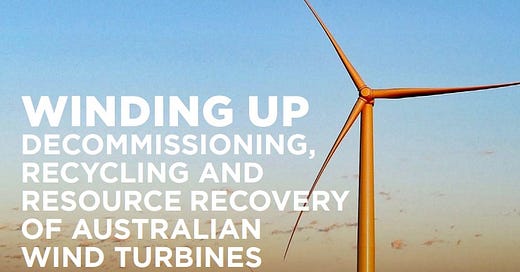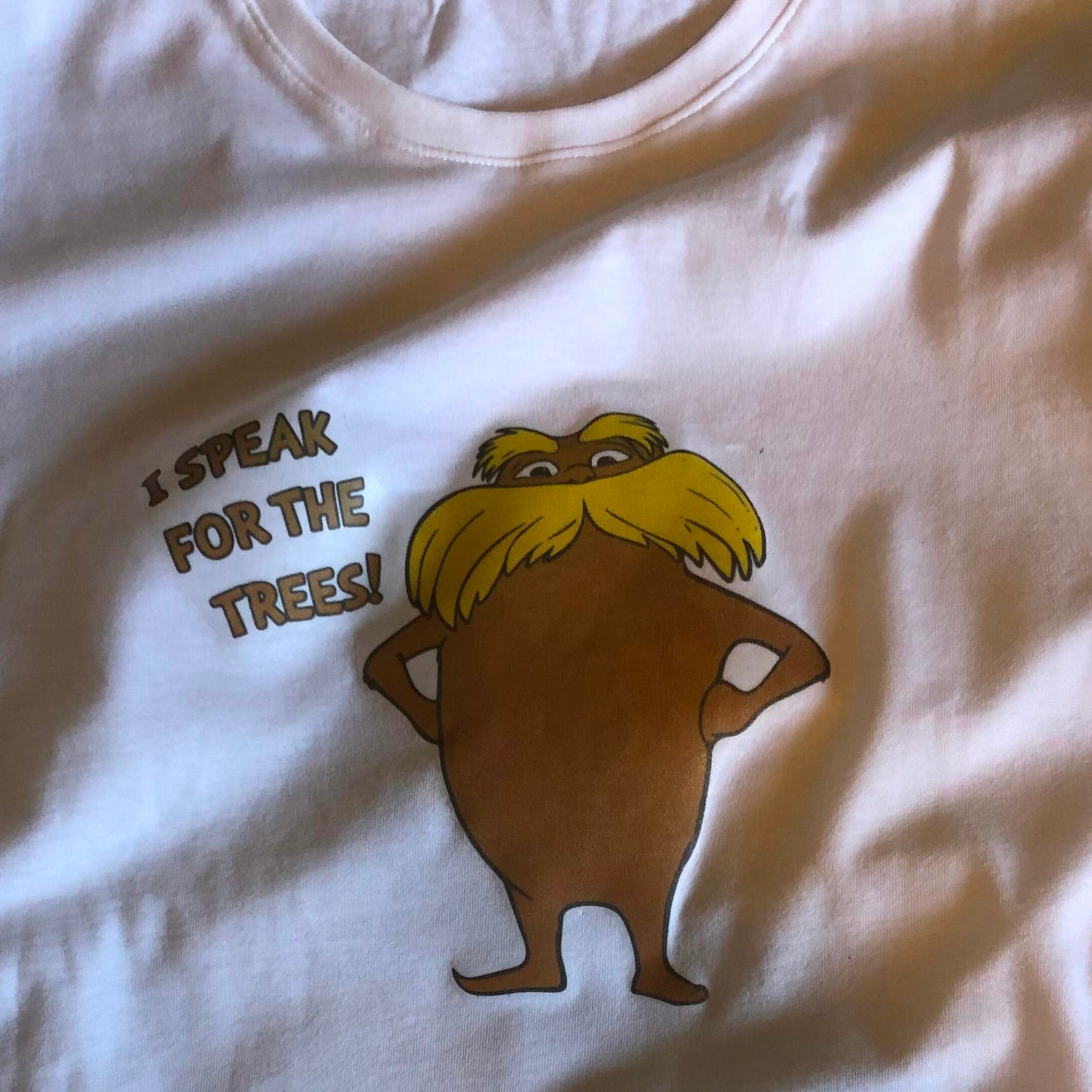Regrow Qld - Whales, sponge cities, and Indigenous burning
Hi everyone,
I came across this 2023 report by the Clean Energy Council this week. It’s all about how the recyclability of wind turbines is being addressed. While most of a wind turbine is recyclable, the blades remain an issue, because they are a composite material.
“The good news is that the recyclability of new composite material blades is being addressed, with wind turbine manufacturers developing new blades that can be recycled as part of their commitment to zero-waste turbines by 2040. Siemens Gamesa has developed the RecyclableBlade, the world’s first recyclable offshore wind turbine blades ready for commercial use, and already has agreements to provide them to three major customers from 2022.23 GE is also developing a recyclable blade through a project program called ZEBRA (Zero wastE Blade ReseArch).24 These recyclable blades use new types of resin that can be separated from the other components of the blade (fibreglass, plastic, wood and metals) through a chemical process, allowing the materials to be reused for new applications.”
https://assets.cleanenergycouncil.org.au/documents/Wind-turbine-recycling-report-2023.pdf
As you are all well aware, there’s been a lot of contention recently about the location of renewable projects in our region. This has caused me a lot of soul searching, and in the end I came up with this - which I wore to speak with the Environment Minister a couple of weeks ago.
For me, this simplifies the whole issue. I speak for the voiceless biology in our region. We need desperately to address Climate Change, but at the same time, we can’t lose the last of our intact ecosystems for projects run by big multinationals.
Let’s go back to the drawing board and re-think our planning for the transition to renewable energy.
Much love,
Anna
GOOD NEWS
This week’s Good News comes courtesy of Fix the News
Did we actually manage to save the whales?
After 80 years of managing global whale populations, the International Whaling Commission may have put itself out of a job. Thanks to its groundbreaking agreement for a moratorium on commercial whaling in 1985, the populations of many whale species are rebounding. 'By exiting with dignity, the IWC would set a powerful example for the international environmental community.' Nature
Berlin is becoming a sponge city
To combat rising temperatures and drought, the city is adopting measures to absorb rainwater—like a sponge—and then release it when water is needed. Nine underground overflow basins have been completed, with one still in the making. At 30 m deep, the basin will hold nearly 17,000 m3 of rainwater, the equivalent of almost seven Olympic-size swimming pools. Deutsche Welle
A massive new water reservoir in the heart of Berlin. Credit: Sven Bock/Berliner Wasserbetriebe
A film about Indigenous fire practices: Burnt Country
This short film was the second-place winner of the 2024 Yale Environment 360 Film Contest, and it’s well worth 20 minutes of your time. It focuses on Tasmania’s Melukerdee people, who have long used low-temperature fires to protect the land. 'One of the cultures that humanity needs to learn from in the coming years if we’re actually going to stabilise this planet.'







